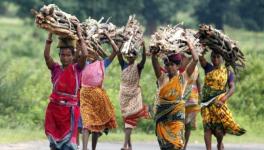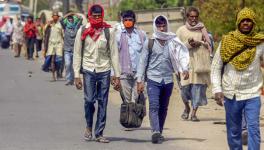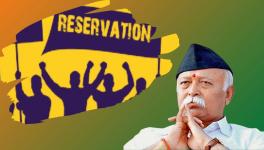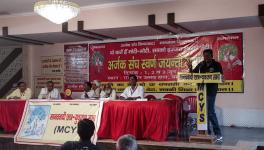Can Dalit-Bahujan and Left-Progressives Join Hands?
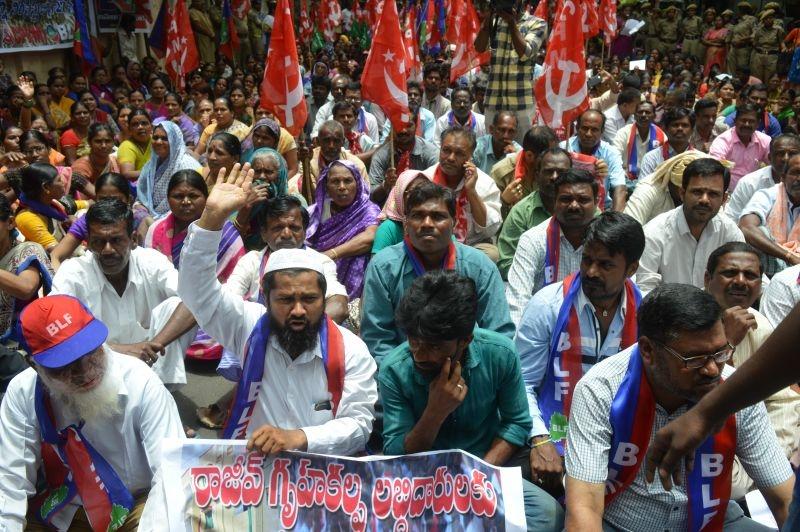
If one is born brahmin, when and how can one legitimately declare having transcended being one? In a society dictated by caste, is it even possible to renounce membership of a social group one is born into? Is it ethical to declare oneself as a non-brahmin based on one's beliefs? Or is it moral to concede that one cannot cease to be a brahmin by “merely” making a declaration to that effect? The latter would imply that it is more ethical to acknowledge one’s caste, even if one is critical of the undue privileges it confers by virtue of birth.
Even if one who was born a brahmin detests ritual hierarchy and spiritual superiority, caste location brings certain material, social and other intangible privileges that cannot be easily expunged. Apart from social privileges, ready networks and acceptance and favourable social recognition—which translate into success and material benefits—there are intangible emotional and other privileges that one corners without any effort or eligibility. These are almost a given, and become an everyday resource that yields benefits without necessarily being noticed. In such a context, can even one with the best of intentions overcome caste at birth or the accrued identity of being a brahmin?
So, when secular-progressive politics demands that the Dalit-Bahujans critique Brahmanism but not brahmins, how valid would that expectation be? It gets especially tricky when it comes to socially-conscious brahmins who have politically dedicated their lives to social causes for the collective good. In such cases, how can Dalit-Bahujan politics sift their individual contributions from the undue privileges they got simply by being born? While collapsing the two is a tad cynical, separating the two (as part of a popular political discourse) is not an easy choice either.
Acknowledging the contribution of birth without highlighting the privileges of social position can either reek of patronage and benevolence or it can give individuals a head start that is unfair to the rest.
Dalit-Bahujan politics attempted to negotiate this dialogue through a “politics of presence”. It demanded more Dalit-Bahujan leaders, writers and intellectuals, without waiting for representation by elite-caste scholars. This equalises and undercuts the social advantages others enjoy. Yet, more important is how individuals belonging to privileged locations themselves respond, even as their effort to de-caste themselves resonates within anti-caste politics. Not acknowledging the effort to divorce oneself from ones caste by birth can be self-defeating for anti-caste politics. But, the point is, how can this be done without reifying the moral superiority of those who give up caste-based networks and privileges.
Can a shared ethos co-exist with ingrained tensions and conflicts of interest? It can legitimately be argued that the onus to create a shared culture falls on those who are privileged, but it would also require Bahujan politics to differentiate between politics and prejudice. That is, political critiques have to be distinguished from the prejudice that can exist against the social location of an individual.
Again, one can legitimately ask why Dalit-Bahujan politics should be burdened by such nuances, considering privileged castes are not. Would this be akin to expecting the subaltern to carry the burden of history? There is a normative answer and a pragmatic answer to this query. In pragmatic terms, Dalit-Bahujan politics requires a more nuanced political discourse in order to institutionalise a different social order. In normative terms, Dalit-Bahujan politics cannot merely mimic the hegemon and yet expect to transcend the existing social order politically. That is, they have been unable to forge a larger solidarity and emphasise on fraternity and instead are following the same sectarian logic offered by caste Hindu hegemon.
By its very definition, transcending the social order requires a new moral universe, and only the underprivileged have the historical location and agency to do so. It is an irony that groups who lack social power are burdened with this expectation of ushering in new values.
How do values get separated from interests, and where does the subaltern group lay its emphasis: this to a large extent decides the contours of historical change. So, the two are linked, but cannot be collapsed into the same thing. Some choices will have to be made that go beyond interests and enter the more abstract, even spiritual, domain. This is what BR Ambedkar referred to when he emphasised on the idea of fraternity: while the essence of Brahmanism is sectarianism, the essence of Dalit-Bahujan politics, notwithstanding its various practical and pragmatic calculations, has to be that of fraternal bonds cutting across castes.
Fraternal bonds, in turn, can only be created when those who belong to the elite castes and are aligned with progressive or Left-secular politics acknowledge that their “privileged” social location denies them a complete comprehension of caste-based discrimination in all its multidimensional forms. The contest between Dalit-Bahujan and Left politics has not moved forward significantly, partly because Left-progressives failed to acknowledge what they learnt from Dalit-Bahujan politics, while Dalit-Bahujan politics failed to emphasise on the innate link between fraternity and justice.
The current majoritarian impasse has inadvertently created a context where moving beyond all kinds of social divides has become an imperative. The Right is, in one sense, overcoming caste divisions through a masculine majoritarianism. The question is, can this be countered by an alternative fraternity based on justice and social mobility?
While right-wing majoritarianism creates “unity” based on retributive justice, alternative solidarity has the challenge of confronting multi-layered issues in which nuances frame every question, including those of hierarchy and exclusion. This need not necessarily undermine political experiments for new kinds of solidarity. There just has to be enough space for “internal” productive tensions.
The author is associate professor at the Centre for Political Studies, JNU. The views are personal.
Get the latest reports & analysis with people's perspective on Protests, movements & deep analytical videos, discussions of the current affairs in your Telegram app. Subscribe to NewsClick's Telegram channel & get Real-Time updates on stories, as they get published on our website.










